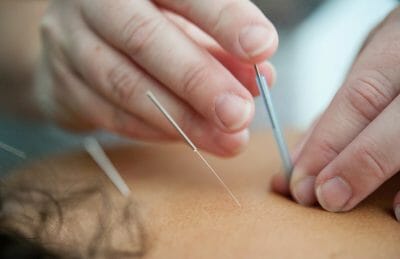Human bodies are capable of doing strenuous activities under ideal physical conditions. Sports, manual labor, and house chores are some of the daily exertions we do that can cause stress to our bodies. When pushed too far, aches and pains start to show which can hinder our performance.
In traditional Chinese medicine, acupuncture uses fine needles to stimulate your body’s natural abilities to heal. So aside from physical exertion, acupuncture is known to alleviate several physical and nervous conditions. So if you’re thinking about getting your first acupuncturing session, here are the top questions you need to ask your acupuncturist:
Who should not take acupuncture?
Acupuncture can be a healing treatment for several ailments, but because it involves inserting needles to target acupuncture points – not everyone will be able to benefit from it. That’s why it’s always recommended to ask your practitioner what conditions are not safe to treat with acupuncture.
But in general, anyone with bleeding disorders, epilepsy, metal allergy, or active infections is not advised to undergo this treatment.
If you’re pregnant, make sure to check with your doctor first to see if you’re eligible for an acupuncture session.
What are the effects of acupuncture?
Everyone’s body won’t respond the same way after an acupuncture session, so it’s always a great idea to ask your acupuncturist what effects to expect after your appointment.
Most will feel relaxed or energized after their treatment. But there are cases where some may experience pain, bleeding, and bruising on areas where the needles were inserted.
Nausea, dizziness, skin rashes, and allergies are also common side effects, so make sure to consult a doctor if these effects persist after a few days.
How do I prepare for my first acupuncture appointment?
If it’s your first acupuncture session, it’s good to ask your acupuncturist what you should and shouldn’t do to make your treatment as comfortable as possible.
Most professionals would say to avoid caffeine and alcohol at least 12 hours before your treatment as these are stimulants that can trigger restlessness. It’s also recommended to avoid strenuous activities beforehand as having an elevated heart rate during your session will lessen the benefits of acupuncture.
Eating at least 2 hours before your appointment will also allow your body ample time to digest your food so you won’t feel discomfort during your session.
Lastly, it’s also best to disclose all of the medications and supplements you’re taking to let your acupuncturist know if they will complicate your treatment.
What happens to your body during acupuncture?
Asking your practitioner how acupuncture works will let you understand how it’s going to heal your body.
That’s why your acupuncturist will ask about your medical history to know how to customize your treatment. They will then insert needles at appropriate points of your body where you feel the most symptoms.
This will stimulate your nervous system, causing the release of hormones that will relieve the pain. It may take several sessions to see results – but with continuous treatments, your symptoms may be permanently healed.
What should I avoid after acupuncture?
Now that you’re feeling relaxed and rejuvenated after a successful acupuncture session, ask your acupuncturist what foods and activities to avoid to prolong the benefits of your treatment.
Drinking lots of water after your session is highly encouraged to help flush out the toxins from your body, but drinking alcohol and caffeine are still prohibited for 1-2 days after your treatment.
It’s also important to let your body rest for the next few days to encourage its healing process, so avoid heavy workouts and stressful activities.
How long do the effects of acupuncture last?
The longevity of the effects of acupuncture will depend on your symptoms, so it’s best to consult with your acupuncturist to know what to expect.
If you’re using acupuncture to treat minor symptoms or injuries, some will feel the effects immediately and can have them last permanently if you give your body the proper time to heal.
While more severe conditions can take several sessions to see significant results, the effects can last anywhere from weeks to months. So it’s best to stay consistent with your treatments if you want to have the effects last longer.
How often should acupuncture be done?
It’s important to ask your acupuncturist how many sessions your treatment will need, so you’ll have an idea of the expected timeline.
You’ll normally have 1-2 acupuncture sessions a week so your body will have enough time to rest and recover.
But the number of sessions it will take to completely get rid of your pain will depend on the severity of your symptoms. Minor issues may take 2-3 sessions to heal, while chronic issues may take months or years to treat.So if you’re interested in getting a professional acupuncture treatment, contact Lycoming Orthopedic & Sports Acupuncture to book your initial consultation.
